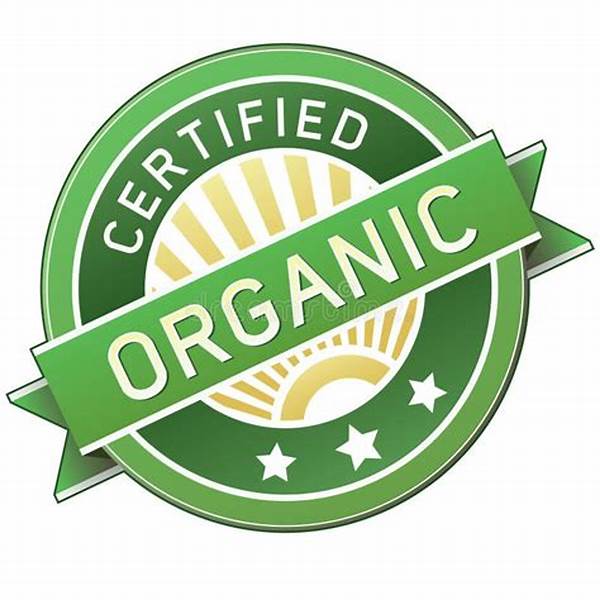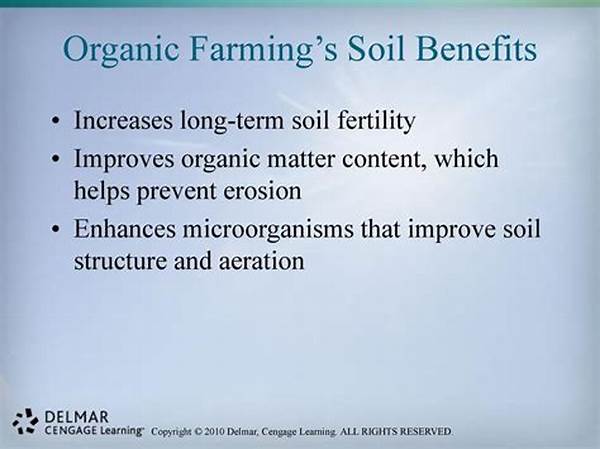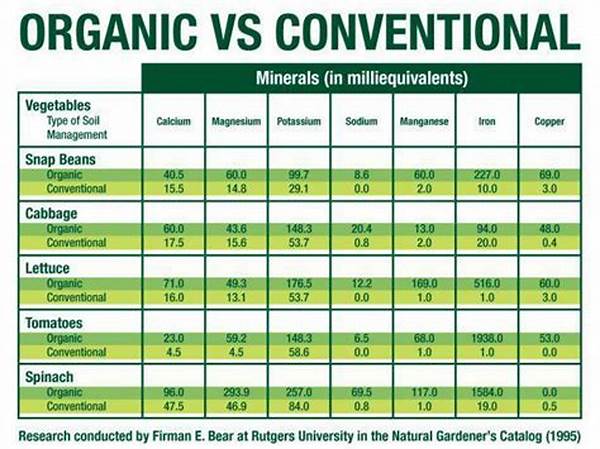In an age where consumers are more discerning and health-conscious than ever, the power of the term “organic” cannot be overstated. It signifies purity, sustainability, and a commitment to preserving the environment while fostering human health. However, behind this revered label lies a complex world of regulations and standards that ensure its authenticity. Organic certification and labeling compliance isn’t just a bureaucratic hurdle; it’s the very foundation that upholds the integrity of the organic industry. For businesses, achieving this compliance is not merely beneficial—it’s essential.
Read Now : Environmentally Friendly Composting Practices
The Importance of Organic Certification and Labeling Compliance
The rigor behind organic certification and labeling compliance is what sets genuine organic products apart from the impostors. Consumers place their trust in the organic label, and for good reason. The certifications confirm that products have met stringent environmental and social criteria. This creates a commitment to genuinely sustainable practices. Consequently, businesses who adhere to organic certification not just align themselves with these values but also resonate deeply with consumers’ growing eco-consciousness.
Achieving compliance aids in maintaining the integrity of the entire organic supply chain. This level of regulation ensures that from farm to table, products remain untouched by harmful chemicals and genetic modifications—a testament to health-focused agriculture. Therefore, for businesses, compliance isn’t merely about following rules; it’s about joining a movement dedicated to better health and environmental stewardship.
Moreover, organic certification and labeling compliance empower businesses to compete in a global market where organic produce is not just a trend but a steadily growing demand. The seal of organic certification provides an undeniable competitive edge, fostering trust and expanding market share in a sector that’s witnessing exponential growth worldwide.
Key Steps in Achieving Organic Certification and Labeling Compliance
1. Understanding Standards: The first step towards organic certification and labeling compliance is thoroughly understanding national and international standards. Familiarity with these standards is foundational, enabling effective navigation of the certification landscape.
2. Transitioning Practices: Transitioning to organic involves time and commitment. Businesses must convincingly showcase their adherence to organic methods such as crop rotation and avoiding synthetic inputs.
3. Documentation and Record-Keeping: Meticulous documentation is critical. Detailed records demonstrate compliance with organic standards and help in audits, proving genuineness.
4. Inspection and Certification: Engaging accredited certifying bodies to conduct inspections is necessary to achieve organic certification and labeling compliance, ensuring all practices meet established criteria.
5. Consistent Compliance Monitoring: Routine checks and audits maintain integrity in production, ensuring ongoing organic certification and labeling compliance, which builds long-term trust between business and consumer.
Challenges in Organic Certification and Labeling Compliance
Organic certification and labeling compliance is a formidable task not only due to its complexity but also because of constantly evolving regulations. Businesses often face the challenge of adapting to these changes while maintaining their core value of offering authentic organic products. Even the most diligent companies can find it daunting to keep up with paperwork, inspections, and international standards. However, these challenges are surmountable with the right commitment and resources.
One major hurdle is the cost—both time and financial investment—required in transitioning and maintaining organic practices. Small to medium-sized enterprises may find this particularly strenuous, yet the long-term benefits vastly outweigh the costs. Conquering these challenges requires strategic planning and an unwavering dedication to the values that organic certification and labeling compliance embodies.
Steps to Maintain Organic Certification and Labeling Compliance
1. Conduct regular training for staff on updated organic standards.
2. Invest in professional consultancy to help navigate complex regulatory landscapes.
3. Develop a resilient supply chain that supports organic practices.
4. Establish robust internal auditing systems.
Read Now : Organic Farming Certification Online Courses
5. Collaborate with industry peers to share compliance strategies.
6. Engage fully with certification bodies to gain insight into best practices.
7. Continuously innovate in organic farming methods.
8. Communicate transparently with consumers about certification achievements.
9. Leverage technology for efficient record-keeping.
10. Stay informed about industry trends and regulation changes.
Strategic Planning for Long-term Compliance Success
Achieving long-term success in organic certification and labeling compliance requires strategic foresight and industry collaboration. Implementing sustainable practices must become second nature within an organization. This transformation begins at the foundational level, integrating organic principles into the core business strategies.
Multiple layers of collaboration, from farmers to retailers, create a cohesive compliance ecosystem, ensuring all parties are aligned in their commitment to organic standards. With a strong network, businesses can better weather the complexities of evolving regulations, establishing a model for others in the sector to emulate.
Leveraging Consumer Trust through Compliance
In today’s marketplace, consumer trust is gold. Organic certification and labeling compliance not only assures product quality but builds a credible brand image. As consumers increasingly scrutinize labels, understanding that a brand meets the highest standards of organic integrity can pivot a potential customer into a loyal one. Thus, compliance isn’t merely a promise—it’s a cornerstone of business longevity and consumer faith.
By consistently adhering to organic certification and labeling compliance, businesses send a strong message about their dedication to authentic products. This trust fosters brand loyalty, repeat purchases, and word-of-mouth recommendations, ultimately driving business growth in an increasingly competitive market.
Summary of Organic Certification and Labeling Compliance
Organic certification and labeling compliance represents a crucial intersection of consumer trust, environmental stewardship, and business integrity. In a rapidly growing organic market, it provides companies not only regulatory approval but also a distinctive branding advantage. Successfully navigating the intricacies of these regulations is integral to standing out in a field where consumers prioritize health and transparency.
As businesses strive to maintain compliance with ever-evolving standards, they not only contribute to preserving environmental quality but also enhance their reputation and market position. The deep bonds of trust forged through organic certification can transform consumer relationships, solidifying a brand’s place in the sustainable future.



